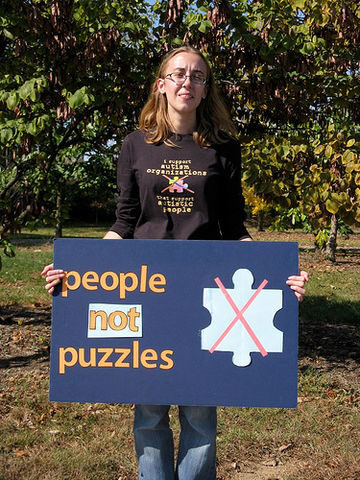This study’s results suggest that if an organization wants to evoke negativity from the public, using puzzle pieces is the way to go. Puzzle pieces evoke negativity. However, if an organization wants to evoke positivity about autism, puzzle-piece imagery is probably not the way to go.
Tag: perception
M. Kelter theinvisiblestrings.com Photo by Boudewijn Berends, used under a Creative Commons license [image: head and shoulders of a person wearing glasses backlit by partially-lighted fog and clouds.] When it comes to online discussions about autism issues, I regularly interact with two realms. The first realm is one we’re all familiar with: the day-to-day articles and conversations and debates that take place regarding a wide range of spectrum issues. Causation, research, personal stories, opinions … just the usual autism topics that you come across as you scroll around blogs, and Twitter, and Facebook. The second realm consists of an invisible community. It’s made up of people who are absorbing every discussion, every debate, every article … yet they are not participating, not sharing their own ideas. They’re just there, quietly and attentively taking it all in. This second group is made up of suicidal autistics. This is not just an…
Jess at Diary of a Mom www.adiaryofamom.wordpress.com A couple of years ago, I had a pretty incredible opportunity. I’d very recently found my voice as an advocate for my beautiful daughter, then just five years old, and so many like her who struggle daily with the challenges of autism. I had spoken publicly just once before, yet I found myself being asked to guest-lecture to a group of prospective neuro-psychs at MIT. I was terrified, but I knew there was no possibility of saying no. What follows is the post that I wrote about the experience. I share it here for a couple of reasons. Firstly, because I’d be hard-pressed to believe that I am the only one who needs the reminder that as parents, our experiences with our children are just as valid and valuable as the knowledge gained by scientists in a lab – no matter how esteemed…

